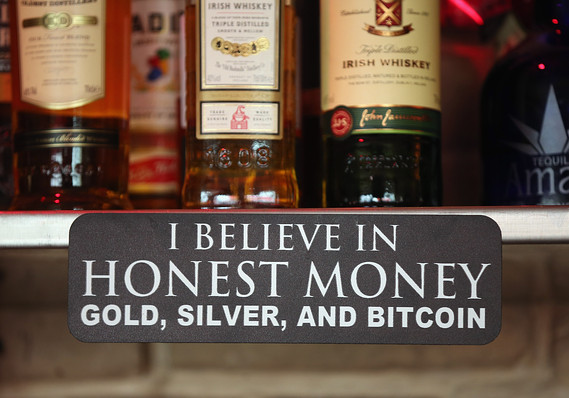
</strong>
Authorities in India and China have cracked down on Bitcoin in the past month. Bitcoin exchanges in these countries are being cut off fromfinancial system, or even subjected to police raids and searches. Where did such disfavor come from, and why are the authorities of these countries so afraid of some kind of digital currency?
Just a month ago, Bitcoin was basking in the sunshinepopularity in China; as recently as late November, Chinese exchanges accounted for two-thirds of global Bitcoin traffic. But the Bitcoin story in China took an ugly turn last December when China's central bank blocked the ability of financial institutions to transact in digital currencies, followed by an unofficial ban on payment processors working with Bitcoin exchanges. These decisions of the Central Bank sent the value of the digital currency down: at the peak of the fall, the price of Bitcoin lost more than half of its value.
Regulators from India last weekjoined the fight. Preferring ominous warnings to a direct ban, the Reserve Bank of India issued a public appeal about the danger of Bitcoin. The hint was clear enough. The largest Indian bitcoin exchange immediately closed, and its owner was visited by a police raid. What caused this overclocking?
Publicly, the People's Bank of China states thatBitcoin is not a currency “in the real sense of the word” and poses money laundering risks. India's central bank allegedly objects to Bitcoin's volatility and lack of “asset backing.” But if you look properly, this is certainly not the real reason. The biggest problem for Central Banks, which is why they imposed sanctions on digital currencies, we think, is the mobility of Bitcoin. There are no boundaries for digital currency. Bitcoins can be purchased in one country and immediately exchanged in another. Since it is not “real” money, it easily circumvents foreign exchange laws. And since Bitcoin is not linked to other assets (which can be seized or confiscated), there are no easy ways for governments to control it.
Take motion control for example.capital in China. Chinese citizens are prohibited from transferring more than $50,000 per year abroad. This policy gives rise to the most ridiculous effects — for example, the fact that in 2012, 17 million Chinese made a pilgrimage to the Macau gaming zone. And they are attracted not so much by the gambling that is allowed there, but by the casino chips. After all, these chips can be bought for non-convertible yuan, and then they can be secretly converted from the government into any foreign currency, and the currency can be sent abroad. Capital flight remained a problem for China in 2013, when the country’s new prime minister declared the company against corruption and began tightening the screws, including financial ones. For wealthy Chinese, Bitcoin is becoming a way to avoid a costly and awkward trip to Macau — the same convertible chips that you can buy without even leaving the country.
Well, in India Bitcoin was an alternativegold smuggling. The terrible devaluation of the rupee this year has left many Indians frantically searching for an alternative to a "reliable official currency". Many rushed to buy gold, but the Indian government responded by closing the doors to its imports. In August, the world's toughest restrictions on gold imports were introduced, and capital controls were tightened to prevent money being sent abroad or investing abroad.
Perhaps it is precisely these hostile actions thatrestrictions on the part of the official authorities of China and India in relation to their populations also explain the attractiveness of Bitcoin for the residents of these countries. And also why he is considered a threat by the authorities of these countries. But that’s bad luck — no government has the ability or resources to ban digital currency. Yes, China can put pressure on large companies to stop using Bitcoin commercially — Alibaba and Baidu were forced to stop accepting it as a means of payment. Yes, India can close exchangers and scare the population with «unreliability» digital currencies. But not a single country in the world can do anything about buying/selling bitcoins "from hand." And even more so, with the “mining” of bitcoins — after all, this activity only requires computer equipment and an Internet connection. It is not for nothing that Chinese investors are so actively investing in the creation of industrial mining farms. Once they have been “mined,” bitcoins immediately leave the reach of regulators.
Digital currency can be many things fordifferent people. Thus, Alan Greenspan told Bloomberg in early December that he considers it a “bubble.” But it could also be the next step in the evolution of payment systems after Paypal, according to Bank of America. Accumulating bitcoins can play a cruel joke on you, because their price jumps by 40% per month. Or give a great chance to increase capital, becauseuptheir price jumps up much more often than down.Paul Krugman thinks Bitcoin — This is barbarism and the fiend of hell. But in some parts of the world, Bitcoin can be an option for a huge number of people, sometimes even the only option available. And if we want to make sense of the crazy race that was the movement of the Bitcoin price last year, we need to take this into account and always remember.
: marketwatch.com Author: Andre Mouton



